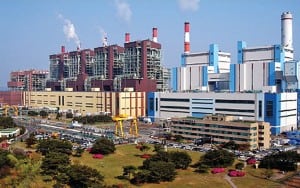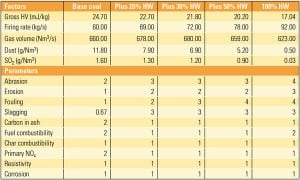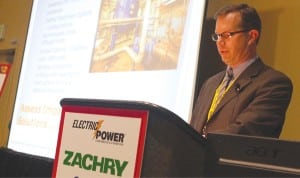Environmental
-
Environmental
EPA’s “Sue and Settle Rulemaking” Criticized in New Report, Congressional Hearing
A new report from the U.S. Chamber of Commerce claims that the Environmental Protection Agency (EPA) uses a regulatory tactic dubbed “sue and settle rulemaking” to force states to relinquish their authority and accept agency-promulgated plans to mitigate regional haze that are much costlier to implement.
-
Environmental
Left-Right Cabal on Carbon Taxes?
Washington, D.C., July 14, 2012 — A group of mainstream conservatives and representatives from Washington environmental groups have been meeting over recent weeks to revive the idea of a U.S. carbon tax as a way to combat alleged man-made global warming. The aim is to have a package of proposed laws to bring up when […]
-
Environmental
EPA Promulgates Final Step 3 of GHG Tailoring Rule
The Environmental Protection Agency (EPA) last week promulgated a final rule that does not revise the greenhouse gas (GHG) permitting thresholds that were established in Step 1 and Step 2 of the GHG Tailoring Rule. The final rule, which comes just days after a federal appeals court ruled the EPA was “unambiguously correct” in its interpretation of the Clean Air Act to regulate carbon dioxide emissions, is the third step of the agency’s phased-in approach to GHG permitting under the Clean Air Act.
-
Environmental
New York Adopts Rules Curbing Carbon at New Plants, Requiring Environmental Justice Analysis
New York’s State Department of Environmental Conservation (DEC) last week adopted rules that set limits on carbon dioxide emissions from new power plants as well as require new or expanding electric generating facilities in that state to evaluate the potential disproportionate impacts on nearby environmental justice communities.
-
Coal
Settlement to Force Wisconsin Cooperative to Install Pollution Control, Close Coal Units
A settlement to resolve alleged violations of the New Source Review (NSR) provisions of the Clean Air Act reached between the Dairyland Power Cooperative (DPC), federal entities, and the Sierra Club will force the Wisconsin utility to invest about $150 million in pollution control technology, retire three coal units at its 210-MW Alma Station, and pay a civil penalty of $950,000.
-
Coal
EPA Grants PNM Stay on San Juan Pollution Control Mandate
The Environmental Protection Agency (EPA) on Tuesday granted PNM a 90-day stay in the effectiveness of the federal plan that would force the Albuquerque, N.M.–based utility to install pollution controls at its 1,800-MW San Juan Generating Station by September 2016 to meet visibility requirements of the Clean Air Act in New Mexico.
-
Environmental
South Korea Enacts Cap-and-Trade Program
The Republic of Korea’s National Assembly on May 2 passed legislation that will mandate cuts in greenhouse gases (GHGs) starting in 2015. The Act on Allocation and Trading of Greenhouse Gas Emissions Allowances passed with a near unanimous vote of 140-0, with three abstentions. It follows the country’s voluntary GHG emissions reduction target of 30% […]
-
Coal
Optimizing Catalyst Performance Lowers O&M Costs
Santee Cooper’s Cross Station has implemented a catalyst optimization program that reduces catalyst replacement cost while maximizing catalyst performance. This case study illustrates the economic advantages of taking a holistic approach to optimizing unit catalyst performance by controlling slag, fouling, sulfur trioxide, and ammonium bisulfate—key factors that lead to premature shortening of catalyst life. With catalyst costing $2 million a layer and up, there is plenty of economic motivation to find ways to improve its life.
-
Coal
New Technologies Advance Biomass for Power Generation
As U.S. utilities seek to increase the percentage of carbon-neutral biomass used in their generation portfolios, they must deal with a number of complex challenges unique to this fuel source. Several breakthrough technologies are poised to help promote greater use of biomaterials.
-
Coal
Clean Air, Dirty Water
Efforts by power producers to meet clean air rules mean that wastewater effluent streams now face revised EPA regulations. A skirmish involving a New Hampshire power plant could set the tone for the next battle over regulations.




